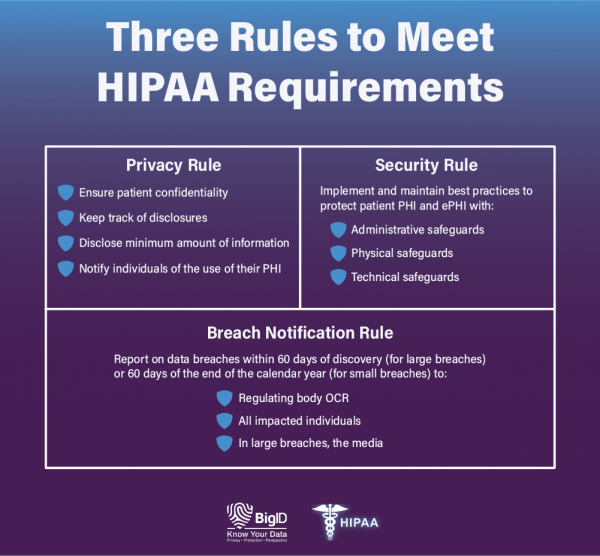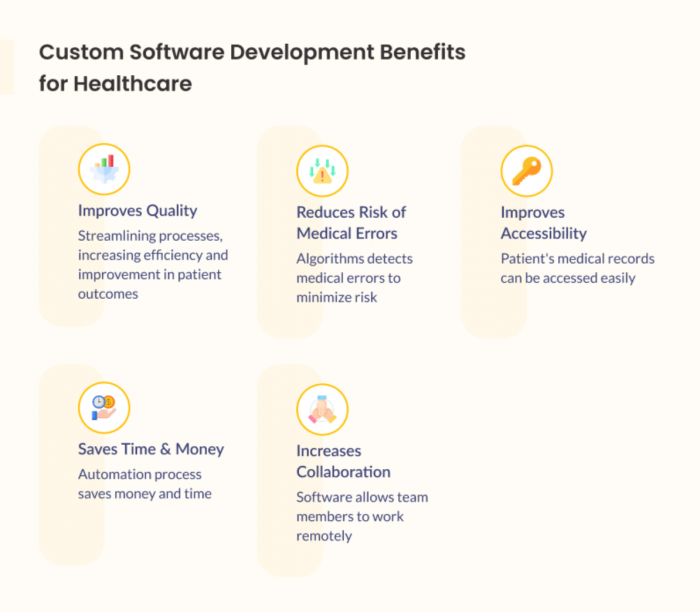
The dynamic nature of the healthcare sector presents a multitude of opportunities for startups, but it also demands a deep understanding of the technological infrastructure required to support their ambitious goals. As these companies strive to revolutionize patient care, improve clinical workflows, and facilitate seamless data exchange, the need for robust, scalable, and secure software solutions becomes paramount.
By partnering with a seasoned software consultant, healthcare startups can gain invaluable insights into the latest industry trends, best practices, and emerging technologies, ensuring their solutions are aligned with the needs of both patients and providers. From the initial stages of ideation and planning to the final implementation and ongoing support, software consulting services cover a wide spectrum of activities that contribute to the overall success of a startup’s digital strategy.
As healthcare startups often face stringent regulatory requirements and must adhere to complex industry standards, such as HIPAA, HL7, and FHIR, the guidance of experienced software consultants is indispensable. By leveraging the expertise of a healthcare software development company like Itirra, startups can ensure their software solutions are not only innovative and user-friendly but also compliant with the relevant legal and regulatory frameworks.
Challenges faced by healthcare startups
The healthcare industry presents a wide array of opportunities for startups to make a meaningful impact. However, several challenges often stand in their way, making the path to success more difficult. Understanding these hurdles is crucial for startups looking to innovate and grow in this complex landscape.
Regulatory compliance
Healthcare startups must navigate a complex web of regulations, including HIPAA, HITECH, and GDPR. These regulations aim to protect patient privacy and data security, but complying with them can be both time-consuming and costly for new companies.
Interoperability
With a multitude of systems, devices, and software applications in use across the healthcare sector, ensuring seamless data exchange and system interoperability is a major challenge. Healthcare startups need to develop solutions that can easily integrate with existing systems and adhere to established data exchange standards, such as HL7 and FHIR.
Funding and revenue models
Access to capital is often a significant concern for healthcare startups. Traditional funding sources, such as venture capital and angel investors, may be risk-averse in the face of regulatory complexities and uncertain revenue models. Additionally, startups must find a balance between delivering affordable solutions and generating sufficient revenue to support their growth.
Adoption and market penetration
Healthcare providers are often reluctant to adopt new technologies due to concerns about disruption to existing workflows, staff training requirements, and potential negative impacts on patient care. Startups must demonstrate the value of their solutions and develop effective strategies to overcome resistance to change.
Competition
The healthcare market is increasingly crowded, with numerous startups and established companies vying for market share. To stand out, healthcare startups must develop innovative solutions that address unmet needs, differentiate themselves from competitors, and communicate their unique value proposition.
Evolving technologies
The rapid pace of technological change presents both opportunities and challenges for healthcare startups. They must stay current with emerging trends, such as AI, machine learning, and telemedicine, while also ensuring that their solutions remain relevant and adaptable as the industry evolves.
Understanding the complexities of healthcare software development
Developing software solutions for the healthcare sector involves navigating an intricate landscape filled with unique challenges and requirements. To create a successful product, healthcare startups must understand and address these complexities throughout the development process.
Emerging technologies and trends
Healthcare startups must monitor the latest technologies and trends in the industry, such as artificial intelligence (AI), machine learning, telemedicine, and the Internet of Medical Things (IoMT). Incorporating these innovations into software solutions not only enhances functionality but also helps startups remain competitive in a rapidly evolving market.
Balancing usability and security
Healthcare software must strike a balance between user-friendliness and robust security measures. Startups need to design solutions that are easy for healthcare professionals and patients to use while also safeguarding sensitive data and meeting stringent security requirements.
Integration and scalability
As healthcare organizations often utilize a diverse range of systems and software applications, startups must ensure that their solutions can be easily integrated into existing infrastructures. Furthermore, software solutions must be scalable to accommodate growth and changing needs without compromising performance or stability.
Regulatory requirements and industry standards
Compliance with healthcare regulations, such as HIPAA, HITECH, and GDPR, is essential to protect patient privacy and ensure data security. Additionally, adhering to industry standards like HL7 and FHIR facilitates interoperability and seamless data exchange among various healthcare systems. Startups must consider these requirements from the outset, integrating them into their software architecture and design.

Quality assurance and testing
Rigorous testing and quality assurance are crucial for healthcare software development, as even minor glitches can have significant consequences for patient care and safety. Startups must establish robust testing protocols and invest in continuous quality improvement efforts to ensure their solutions meet the highest standards of reliability and performance.
Long-term support and maintenance
Given the ever-changing nature of the healthcare industry, ongoing software support and maintenance are vital. Startups must plan for regular updates and enhancements to keep their solutions current and compliant with evolving regulations, standards, and technologies.
By recognizing and addressing these complexities, healthcare startups can significantly improve their chances of success. Partnering with an experienced software consulting firm can help navigate these challenges and develop robust, innovative solutions that meet the unique demands of the healthcare sector.
Benefits of partnering with a healthcare software consulting firm
Healthcare startups can greatly benefit from collaborating with a software consulting firm that specializes in the healthcare sector. By leveraging the expertise and experience of such firms, startups can navigate the challenges unique to healthcare software development and set themselves up for success. Here are some key advantages of partnering with a healthcare software consulting firm like Itirra:
Expert guidance and regulatory compliance
A specialized software consulting firm brings in-depth knowledge of healthcare regulations, industry standards, and best practices. Their expert advice can help startups understand and adhere to these regulations, identify potential pitfalls, streamline the development process, and build solutions that meet the unique needs of the healthcare sector, reducing the risk of non-compliance and potential legal consequences.
Tailored solutions
Every healthcare organization has its own set of requirements and constraints. A consulting firm can help startups develop customized software solutions that address their target audience’s specific needs, ensuring a better fit and increasing the chances of a successful adoption.

Accelerated development and time to market
Software consulting firms have the resources and expertise to expedite the development process, enabling startups to bring their solutions to market more quickly. A faster time to market can provide a competitive edge, especially in a rapidly evolving industry like healthcare.
Access to industry networks
Software consulting firms often have established connections within the healthcare industry, which can be invaluable for startups seeking partnerships, funding, or other opportunities. These connections can also help startups gain insight into market trends and customer needs, informing the development of more targeted and effective solutions.
Cost efficiency
Engaging a healthcare software consulting firm can result in cost savings for startups. By leveraging the consulting firm’s expertise, startups can avoid common mistakes and inefficiencies that can lead to additional expenses. Additionally, the consulting firm can help startups optimize their development process and allocate resources more effectively, ultimately reducing development costs.
Enhanced security measures
Security is a paramount concern in healthcare software development. Consulting firms with experience in the sector can help startups design and implement robust security features, ensuring that their solutions comply with industry standards and protect sensitive patient data from potential threats.
Continuous improvement and innovation
Partnering with a healthcare software consulting firm provides startups with access to ongoing innovation and improvement opportunities. Consulting firms stay up-to-date with the latest technologies, trends, and best practices, which can help startups refine their solutions and maintain a competitive edge in the market.
Training and change management
Healthcare software consulting firms often offer training and change management services, helping startups ensure a smooth transition when introducing their solutions to healthcare providers. These services can include training materials, user manuals, and on-site support, helping end-users adapt to the new software and understand its benefits.
Comprehensive project management
A healthcare software consulting firm can provide comprehensive project management services, overseeing the entire development process from conception to deployment. This level of oversight can help ensure that the project stays on schedule, within budget, and meets its objectives while maintaining the highest quality standards.
Conclusion
Healthcare startups face numerous challenges and complexities unique to the industry. Developing effective and secure software solutions requires a deep understanding of healthcare regulations, industry standards, and emerging technologies. By partnering with a specialized healthcare software consulting company, startups can navigate these challenges more effectively and increase their chances of success.
The collaboration with a consulting firm offers a multitude of benefits, from expert guidance and tailored solutions to cost efficiency and comprehensive project management. Startups can leverage the expertise and resources of the consulting firm to accelerate their development process, ensure regulatory compliance, and gain access to valuable industry networks. Ultimately, this partnership can help startups create innovative solutions that address the specific needs of the healthcare sector and drive positive change within the industry.
Healthcare startups looking to make a lasting impact should consider the advantages of partnering with a software consulting firm. By relying on the specialized knowledge and experience of the Seattle-based Itirra, startups can focus on their core objectives while building robust, secure, and scalable software solutions that meet the ever-evolving demands of the healthcare landscape.

